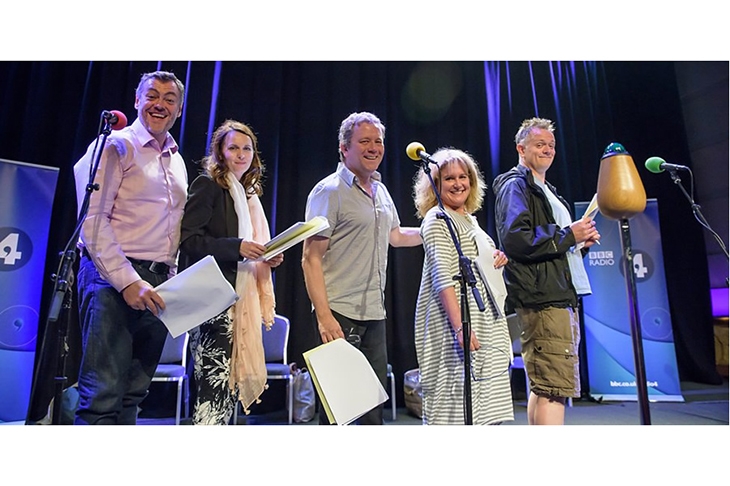‘It was so unreal,’ said one of the first world war veterans about the long-awaited Armistice. It was the most striking thought I heard all week, and the most shocking. The sense that when the guns finally fell silent at 11 o’clock on 11 November 1918 (and both sides had continued to barrage each other until the very last minute), signalling the end of war, the arrival of peace, the opportunity to return home, to go back to ‘normal’ life — that all this was somehow ‘unreal’. But for the young men who had spent four years in the trenches, that life of fear and dirt and rats and mud had become their normal; it was the only way to survive. When it was over, many of them were left with ‘a terribly empty feeling’.
Dan Snow’s Radio 4 series Voices of the First World War (produced by Megan Jones) has followed the course of the war over four years from Ypres and the first Christmas truce to Passchendaele and the battle of Cambrai, using recordings of conversations with those who took part, often made just in time as the generation who fought on the Western Front and in the Middle East neared the end of their lives. They were looking back after several decades and were themselves struck by their odd reactions. ‘We were too far gone, too exhausted, to enjoy it.’ They would also be leaving so many ‘chaps’ behind. ‘That was the sad part.’
Hearing the voices of those who fought in the war creates such a powerful connection with actual events, making them vividly real to us now even 100 years later. Their stories told directly to us through these recordings is like handing on history from one generation to the next, not telling us to remember but making sure that we do. As Guy Garvey (lead singer of Elbow) said on his Radio 4 programme, Recording Dad (produced by John Leonard and Becky Garvey), the voice is so potent, so immediate a link back into memory.
He began recording his father after hearing an interview with a man who had watched Blériot’s ‘flying bicycle’ crash-land into an English field after making the first cross-Channel flight from just outside Calais. Garvey was struck by the immediacy of hearing that voice and the power of storytelling to bring the past back to life. He now has a rich archive of his father (who has since died) telling stories from his life, and is launching a campaign to persuade everyone to do the same, made so much easier now by smartphone technology.
The first time is the most difficult — trying to convince the older generation to tell their stories without making them think you’re assuming they’re about to die. But he and his guests gave tips on how to open up the conversation. Ask them what’s important to them. Or choose an object in the room and ask them what it means to them. Talk about a favourite song or piece of clothing. There was no discussion of how to confront difficult relationships, except that if you ask someone to tell you their story it does help them to feel special, treasured, by being recorded, kept alive through technology. Start now, urges Garvey.
On the World Service, Doug Levitt has spent the past 12 years recording the stories of those who travel across the USA by bus. It’s ‘a self-selecting community’, he says, of people without cars, not enough money to travel any other way, or who have to get somewhere miles from a train station. The people he meets are not so very different from those Woody Guthrie talked to when he travelled across the States during the Depression years. They’re often people on the edge, in trouble, dealing with family emergencies; you can hear it in their voices. On The Greyhound Diaries (produced by David Goren) he meets Bertie, a tall, grey-haired man, carrying an anti-gun poster and wearing a sombrero in sympathy with the Hispanic population. He spent his last pennies to travel to Washington DC from Ohio to go on an anti-gun demonstration.
Edward is about to turn himself in after being on the run from probation for a year. He used to work in Mexico, he says. In the drugs business, asks Levitt. No, says Edward, reluctant to explain what he did. It turned out he was a ‘heavy’, working on those who don’t pay. ‘You look like such a nice guy,’ says Levitt. He could have said, ‘And you have a lovely soft voice.’
A familiar deep and seductive American drawl made a surprising debut on Radio 4 this week — as a chimpanzee. John Malkovich starred as Cheeta in Stef Penney’s adaptation of James Lever’s mock biography Me, Cheeta: My Life in Hollywood (directed by Kate McAll), which tells the story of the chimpanzee who starred alongside Johnny Weissmuller in the Tarzan movies. Malkovich was almost, but not quite, outperformed by the cheetah-like squeals that accompanied his gnomic utterances on the oddities of human mating. It was daft, but delightfully vivid and Malkovich was so evidently enjoying the freedom of being behind a microphone, not in front of a camera.






Comments